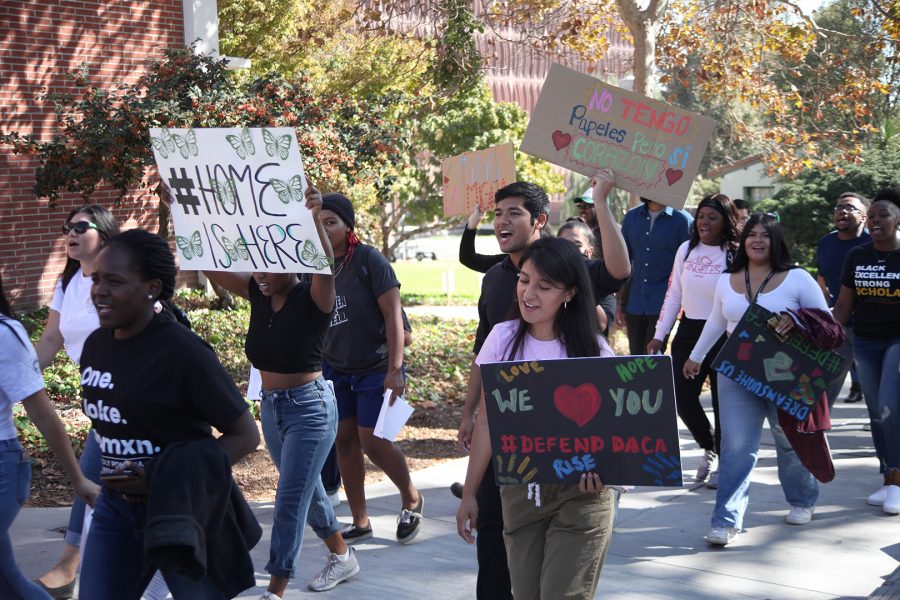California Community Colleges Chancellor Eloy Oakley announced that California community colleges filed a federal lawsuit against the U.S. Department of Education for relief funds, and answered questions regarding topics such as Wi-Fi access and financial aid in a virtual conference with student media representatives on Tuesday.
By suing, the California community colleges system aims to stop what they view as “arbitrary” restrictions from the federal government on who can receive Coronavirus Aid, Relief and Economic Security (CARES) Act funds.
The CARES Act was passed by Congress and signed by President Donald Trump in March in order to provide $2.2 trillion in relief funds to those who have been affected by the COVID-19 pandemic. $300 million were allocated to the California community colleges, and how much each individual college would receive was based on full-time enrollment. Mt. SAC received approximately $17.5 million from the CARES Act.
U.S. Secretary of Education Betsy DeVos initially stated that colleges would decide how to allocate and distribute these funds. Oakley also stated that undocumented students would still be able to receive these funds in a previous conference in April, despite the fact that the funds were coming from the federal government.
However, a set of frequently asked questions released by the Department of Education said otherwise. “Only students who are or could be eligible to participate in programs under Section 484 in Title IV of the Higher Education Act of 1965, as amended (HEA), may receive emergency financial aid grants,” it stated. According to a press release from the chancellor’s office, this leaves out veterans, students who have not submitted a federal financial aid application and non-citizens, including those under DACA status.
“We will continue to stand firm behind our students, particularly our undocumented students, and advocate for them to receive the support that they deserve to be successful, and our campuses will continue to be a place of safety and stability for them,” Oakley said.
Should the lawsuit fail to find the restrictions unlawful, Oakley said that the California community colleges would follow the department’s guidelines and find other means to provide funds for the groups who are left out.
Oakley also addressed the issue of students from low-income backgrounds who lack internet access as colleges prepare to continue online instruction in the fall. He said that some colleges have been working to mitigate this, and cited that Southwestern College in Chula Vista has been providing Wi-Fi in the school’s parking lots.
“We’ve been getting creative, but creative only goes so far,” Oakley said. “So we are pressing the governor, the legislature, to come up with solutions working with our broadband providers in the state, to continue to increase access for our lowest income communities…because this is affecting all levels of public education and private education.”
He added that all low-income students will continue to have fees waived. According to Vice Chancellor Marty Alvarado, the community colleges system does not expect any impacts on financial aid due to the online transition.
“The short answer is, we are not anticipating substantial impacts to financial aid or impacts to financial aid, generally, for the conversion to online,” Alvarado said.
Oakley also provided words of encouragement for students working through the pandemic.
“Don’t let the bullshit that you see in front of you stop you from moving forward,” Oakley said. He also said that California community colleges students have had to be resilient in the past and will become stronger as a result.
“Just keep pushing through,” he said. “We will be fine because of all of you.”



